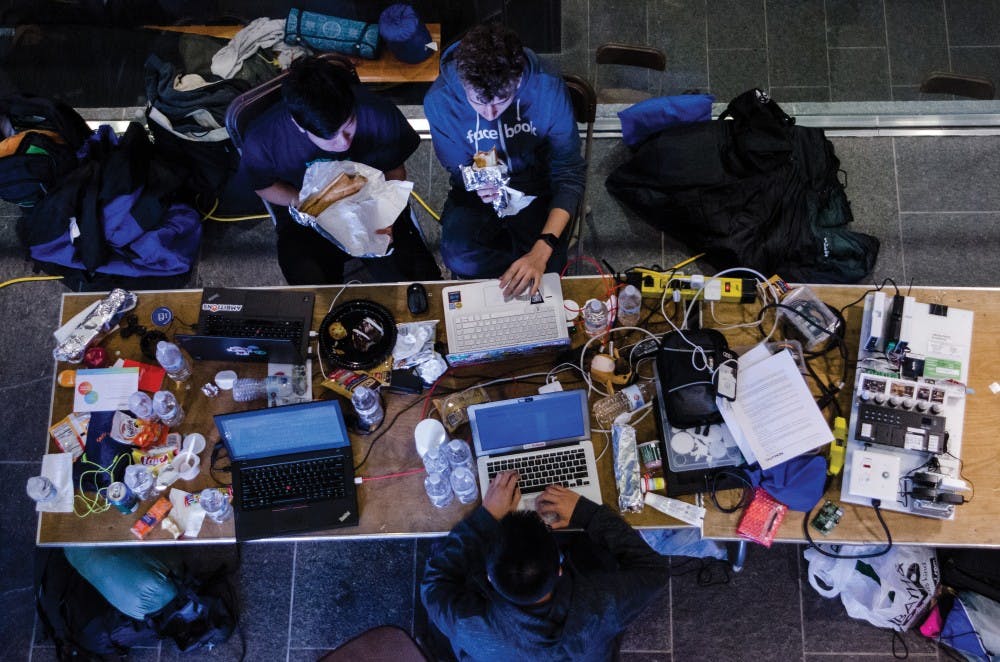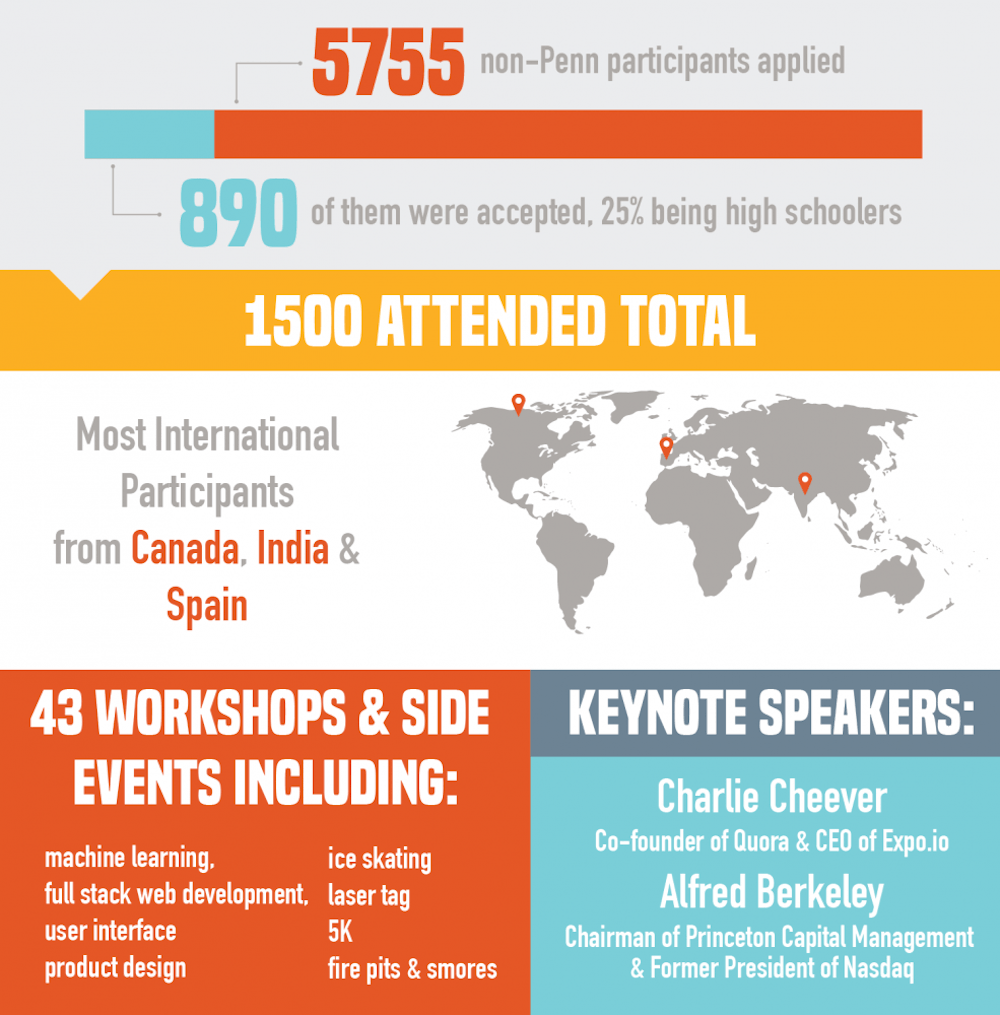
Over a thousand students from across the world gathered on Penn's campus this weekend for 36 hours of digital innovation.
Back for its 16th iteration, the University's biannual hackathon, PennApps, featured keynote speakers for the first time this year.
Student hackers claimed spots all over campus to code and develop applications in the hopes of winning prizes, which had a total value of more than $77,000. The top three winning projects were Sorty McSortface, a recycling and trash bin which automatically sorts waste, PillAR, a virtual medicine tracker and Todd: the inter-dimensional robot, which combines robotics and augmented reality in a two-player game.
Unlike previous years, the event was bookended by two industry experts who addressed the crowd during the opening and closing ceremonies. They were co-founder of the forum site Quora, Charlie Cheever, and former Nasdaq President Alfred Berkeley, who is also a 1968 Wharton master's graduate.
Vice Director of the PennApps Executive Committee and Engineering junior Sunia Bukhari said the keynote speakers were invited to provide perspective and experience that are “not just something you can find on Wikipedia.”

Bukhari added that PennApps organizers purposefully selected keynote speakers with differing perspectives and backgrounds. They hoped that Cheever, the co-founder of Quora would be more “relatable” to young hackers because of his familiarity with modern technologies, while Berkeley could provide students with "what companies or what other people think about and are looking for."
In the opening address, Cheever touched on his time in college and his experiences working at Facebook and Quora. He also talked about creating Expo.io, a free and open-source platform which facilitates the creation of mobile software.
While recounting his first hackathon experience at Facebook, Cheever reminded the audience to be aware of the inter-personal side of creating technology.
“When you do a hack-type thing, the programming and the building of the thing is only half the battle," he said. "The other half is doing the politics or talking to people.”
Hannan Zubair, a fifth-year McMaster University student, said he appreciated Cheever’s “life lessons,” and particularly enjoyed his story about meeting Mark Zuckerberg at Harvard University's Ultimate Frisbee club.
“I thought it was interesting that in his general interactions, he met Mark Zuckerberg and Evan Spiegel, who are now founders of big companies," Zubair said. "It’s like, anyone here can be the next Mark Zuckerberg.”
Tom Wojtczak, a third-year at McMaster University, worked with Cheever on a project that used Expo.io.
"It wasn't like meeting a celebrity. It was really chill. He was just chilling in his room eating cheesesteaks," Wojtczak said. He added that Cheever was one of the mentors who stayed the latest at the event to help students build their app.
Bukhari said other new additions to PennApps this year include collaboration with Penn Center for Health Care Innovation, Penn Center for Innovation, Penn Wharton Entrepreneurship and the School of Nursing. The introduction of these collaborations was part of a larger effort to encourage health care technological innovation.
WeissLabs also worked with PennApps to provide resources and mentorship to the top hacking projects by Penn students.
“All these hackers have such potential and they make such amazing things but sometimes they just leave it at PennApps,” said Bukhari. “We want to let them be able to take it beyond a weekend-long hackathon.”
The Daily Pennsylvanian is an independent, student-run newspaper. Please consider making a donation to support the coverage that shapes the University. Your generosity ensures a future of strong journalism at Penn.
Donate



